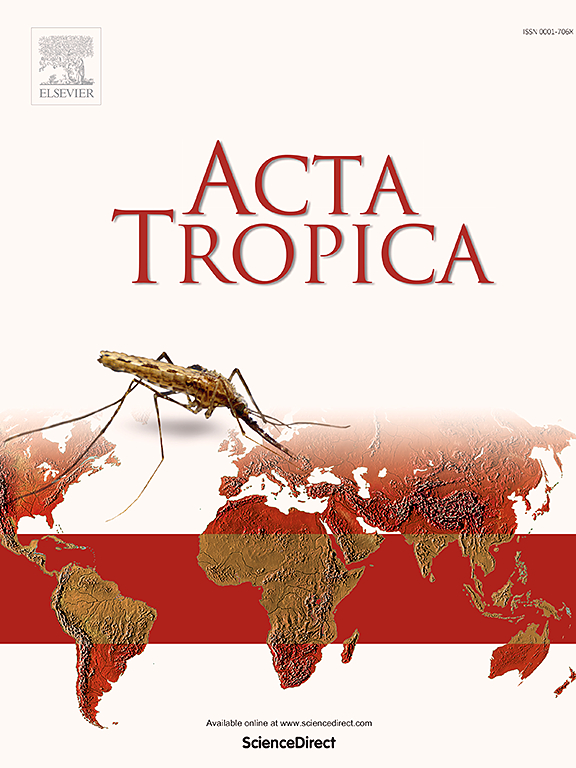哥伦比亚武装冲突结束的影响及其对出现与急性无分化发热性疾病有关的人畜共患病原体的影响:未来需要应对的挑战。
IF 2.5
3区 医学
Q2 PARASITOLOGY
引用次数: 0
摘要
在哥伦比亚,持续了50多年的国内武装冲突产生了重大的社会经济和环境影响。2016年达成的和平协议解除了重要的非法武装团体,为经济发展带来了新的机遇,但也给公共卫生带来了挑战。以前由非法武装团体控制的难以进入的地区几乎没有受到人为干扰,现已向农业、畜牧业和生态旅游等几种人类活动开放。这些活动加剧了对生态系统和野生动物栖息地的破坏,促进了与野生动物的接触,为人畜共患病原体的溢出和出现创造了条件,主要是那些与急性无分化发热性疾病有关的病原体,因为该国大部分地区是热带和亚热带地区。尽管一些研究表明存在人畜共患发热性疾病的传播,但由于曾经被隔离的地区仍然缺乏适当的卫生保健基础设施和监测系统,该国存在未被识别和可能具有高毒性的人畜共患病原体,这仍然是一个令人关切的问题。本叙述性审查探讨了哥伦比亚武装冲突的结束可能如何影响人畜共患病原体的出现,同时审查了相关挑战并提出了解决这些关切的潜在解决办法。本文章由计算机程序翻译,如有差异,请以英文原文为准。
Repercussions of the end of the armed conflict in Colombia and its influence on the emergence of zoonotic pathogens related to acute undifferentiated febrile illness: future challenges to be addressed
In Colombia, the internal armed conflict, which lasted over 50 years, had a significant socio-economical and environmental impact. The peace agreement reached in 2016, with the demobilisation of important illegal armed groups, opened new opportunities for economic development, but it has also brought challenges to public health. Formerly inaccessible areas controlled by illegal armed groups, which remained almost untouched by human disturbance, have opened to several human activities such as agriculture, livestock farming, and ecotourism. These activities have increased disrupting ecosystems and wildlife habitats, promoting contact with wildlife, creating conditions for the spillover and emergence of zoonotic pathogens, mainly those associated with acute undifferentiated febrile illness since most of the country is tropical and sub-tropical. Although some studies have shown the circulation of zoonotic febrile illnesses, the presence of unrecognized and potentially highly virulent zoonotic pathogens in the country remains a concern, since areas that were once isolated still lack proper healthcare infrastructure and surveillance systems. This narrative review explores how the end of the armed conflict in Colombia may have influenced the emergence of zoonotic pathogens, while examining related challenges and proposing potential solutions to address these concerns.
求助全文
通过发布文献求助,成功后即可免费获取论文全文。
去求助
来源期刊

Acta tropica
医学-寄生虫学
CiteScore
5.40
自引率
11.10%
发文量
383
审稿时长
37 days
期刊介绍:
Acta Tropica, is an international journal on infectious diseases that covers public health sciences and biomedical research with particular emphasis on topics relevant to human and animal health in the tropics and the subtropics.
 求助内容:
求助内容: 应助结果提醒方式:
应助结果提醒方式:


